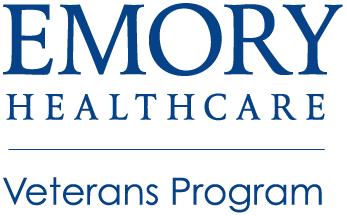Postdoctoral Fellowship in Cognitive and Behavioral Psychology
We are currently accepting applications for the 2026 training year for the following positions: (a) a one-year clinical fellowship, with the option to renew the appointment for an additional year; (b) a two-year clinical fellowship (preference will be given to applicants applying for this position); and (c) a two-year dual-focused research and clinical fellowship. Applicants are encouraged to specify in their cover letters their track preference. Applicants may apply to more than one focus but should specify their preferred position. Interviews are conducted and offers are made on a rolling basis, so early application is strongly encouraged.
The Emory Healthcare Veterans Program (EHVP) provides advanced clinical training to prepare fellows to assume a variety of roles as professional psychologists, with in-depth training in serving the mental health needs of our nation's military and veteran population. Fellows obtain outstanding training in the practice of clinical psychology under the direction of Drs. Barbara O. Rothbaum and Sheila A. M. Rauch. EHVP provides a two-week intensive outpatient treatment program (IOP) for post-9/11 active-duty military service members and veterans struggling with conditions including posttraumatic stress disorder (PTSD), anxiety, depression, co-occurring substance use disorders (SUD), military sexual trauma (MST), and traumatic brain injury (TBI). Fellows practice within an interdisciplinary team, train within a scientist-practitioner framework, contribute to the leading edge of clinical care, and are valuable members of our treatment team. Fellows receive cutting-edge clinical training in massed evidence-based treatments including Prolonged Exposure (PE) therapy and Unified Protocol (UP), as well as evidence-based intake assessments including the CAPS-5-R and DIAMOND. Fellows receive ample supervision and consultation given our team approach to patient care, including individual and group supervision, as well as formal trainee didactics.
Additional clinical training opportunities include massed Unified Protocol group therapy; massed In-Vivo group therapy; individual and group family services based on the FOCUS model; individual and group wellness interventions; and individual SUD interventions (e.g., relapse prevention, COPE).
The one and two-year clinical fellowships primarily focus on training in evidence-based assessment and treatment; however, the clinical fellowship allows for research engagement based on fellow interests. The two-year dual fellowship is structured with a dual focus on advanced clinical training and advanced clinical research. These dual fellows engage in half-time clinical work and half-time clinical research.
All fellows, regardless of track, have access to rich archival data and ongoing research projects led by our faculty psychologists. Research interests among EHVP faculty include, but are not limited to: PTSD, anxiety, mental health disparities and access to care, psychotherapy outcomes, virtual reality-based exposure therapies (VRET), psychedelics and adjunctive pharmacological therapies (e.g., MDMA, THC, psilocybin), neurobiological predictors/outcomes of treatment, and early intervention/prevention of PTSD. Participation in research provides opportunities to gain a breadth of experience and to collaborate with colleagues across the Emory community and nationwide.
EHVP is housed in the Brain Health Center within the Emory University and Emory Healthcare systems in Atlanta, Georgia. The full and rich resources of this thriving community are available to fellows, and the program also actively fosters professional development. Various opportunities for specialized training, consultation networks, community outreach, and collaboration are available. The Atlanta metropolitan area is the largest in the state of Georgia, ninth largest in the United States, and home to a diverse population of more than five million residents. Atlanta is home to numerous museums, art galleries, and cultural landmarks, as well as thriving music, film, and sports scenes. Past EHVP fellows have valued the city’s cosmopolitan atmosphere, vibrant green spaces, and reasonable cost of living.
The stipend is currently $62,232 and will be updated in line with changes to the NIH postdoctoral fellow stipend levels. In addition, fellows typically have access to professional development funds for licensure costs, training materials, and conference travel.
EHVP seeks to create a work environment and organizational culture that reflect the community and society we serve and a climate that appreciates the unique contribution of diverse employees that facilitate their success. We actively encourage applications from members of all groups traditionally underrepresented in clinical psychology and higher education, including ethnic and racial minorities, veterans, and people with disabilities.
Postdoctoral Fellow Application Requirements
Applicants for the postdoctoral fellowship must have satisfactorily completed all requirements of a graduate program toward a PhD or PsyD in clinical psychology (or closely related field) or expect to complete all requirements prior to the start of the fellowship. Additionally, applicants must have completed an APA accredited predoctoral psychology internship or be in the process of completing an APA accredited internship at the time of application. Experience working with veterans and/or active-duty service members; treatment of PTSD and associated comorbidities; cognitive-behavioral therapy; exposure therapy; structured-clinical interviews (e.g., CAPS-5, DIAMOND); and clinical research is desired.
To apply:
- Send a cover letter, CV, and three letters of recommendation to Dr. Katie Lanier, Director of Training, at karagsd@emory.edu.
- Specify in your cover letter whether you wish to be considered for (1) the one-year clinical focus; (2) the two-year clinical focus; and/or (3) the two-year dual clinical/research focus. You may apply to more than one focus but should specify your preferred position.
2. Once you’ve completed step 1 above, please complete the Emory application. We will provide this link to you following receipt of your e-mail application.
Rolling application review will begin December 1, 2025, and virtual interviews typically occur in December and January. Interviews are conducted and offers are made on a rolling basis, so early application is strongly encouraged.
Please direct any questions to Dr. Katie Lanier at karagsd@emory.edu


